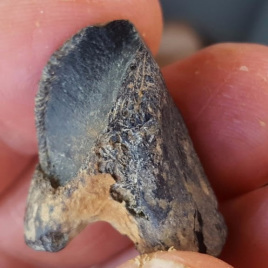For the first time ever, researchers have evidence of horned dinosaurs roaming eastern North America near the end of the Age of Dinosaurs. Researchers discovered a tooth fossil dating 68 million years back, with unmistakable features pointing to its owner, a Triceratops-like dinosaur. Until recently, it was thought that ceratopsids—horned dinosaurs—were only found in western North America. […]

SMCC Webinar: Sea Level Rise and Climate Change | Links, background reading & resources
SMCC Webinar – Sea Level Rise and Climate Change 12:00 PM ET, Thursday, June 1, 2017 In partnership with the Canadian Meteorological and Oceanographic Society, the Canadian Climate Forum, and the Marine Environmental Observation Prediction and Response Network Links, background reading and resources from our panelists: Dr. Adam Fenech – Director of the Climate Lab […]
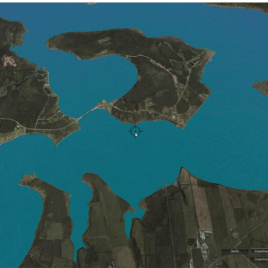
WATCH NOW | SMCC Webinar: Sea Level Rise and Climate Change
As the climate changes and the planet’s temperatures increase, rising sea levels are now becoming one of the greatest threats to the world’s populations. The latest research shows that the sea level rise will double the frequency of severe coastal flooding in most of the world, with dire consequences for major coastline cities—including those in […]
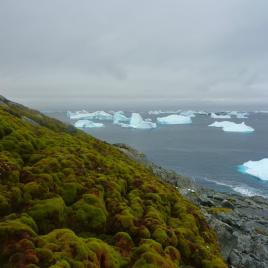
Moss study reveals widespread climate change in the Antarctic
Moss from additional sites on the Antarctic Peninsula has allowed scientists to get a clear picture of the ecological changes the region underwent over the past 50 years. A new study builds on previous research from 2013, where scientists studied mosses and microbes growing at the southern end of the Antarctic Peninsula. In the recent […]
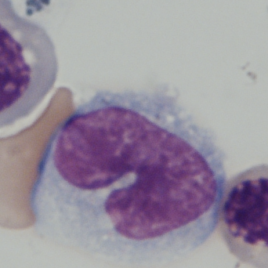
Scientists one step closer to creating blood stem cells in a lab 
Creation of stem cells in a lab could revolutionize stem cell therapies by addressing the need for human donors. Researchers describe successful creation of haematopoietic (blood) stem cells in a lab setting in a new paper. First, the scientists obtained human pluripotent stem cells from donors, and used chemical signals to turn these cells into […]
Alpine Fault under New Zealand’s South Island ready to rupture 
Conditions inside the Alpine Fault, which runs almost the entire length of New Zealand’s South Island, are much more extreme than previously thought. A new study describes the findings of a group of researchers who have drilled a borehole into the fault to examine its state. Their results showed extremely high temperatures and high fluid […]

Beaver dams can regulate temperatures to keep important fish habitat safe
Beaver dams are helping keep the river waters cool and cozy for steelhead salmonids, as results of a new study suggest. Some studies have suggested that dams help raise water temperatures, therefore endangering heat-sensitive species. To test that theory, researchers tracked beaver dams and monitored water temperatures along 34 kilometers of the John Day River […]

How plankton and bacteria shape sea spray
Did you know that the tiny bubbles that appear on the surface of waves as they break against the seashore help shape our climate? A new study has found the secret behind these bubbles’ atmosphere-changing power: molecules secreted by phytoplankton and tiny bacteria that live on the ocean floor. Sea spray aerosol, which is the […]
New toothed fossil the missing link between ancient and modern baleen whales
Scientists finally found the missing evolutionary link between the modern whales’ toothed ancestors, the basilosaurids, and the filter-feeding mysticetes, which include the blue whale, the humpback whale, and the right whale. A recent paper describes a 36.4-million-year-old whale fossil with teeth and small vestigial hind limbs, which also help connect it to the whales’ ancient land-dwelling […]

Gluten-free products not sufficient substitutes for their gluten counterparts
New research calls for a re-invention of gluten-free products with healthier raw materials to ensure sufficient nutrition for people with wheat-free diets. With more people diagnosed with celiac disease now than ever before, and more people still adopting a gluten-free diet as a lifestyle choice, it’s important to know the pros and cons of wheat-free […]

Typical “Western” diet associated with higher risk of gout 
A diet that consists of salty and sugary foods and red meat is linked to a higher risk of gout, according to a new study. Researchers looked at the population most commonly affected by gout —men aged 40 to 75—over a 26-year period, and assigned scores based on the participants’ self-reported diet. A higher intake […]
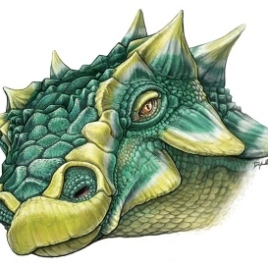
The first complete ankylosaur fossil gets its name from Ghostbusters 
Ankylosaurs were among the last non-avian dinosaurs; they walked on four legs and had wide armoured bodies and large horns. But much of what we know of ankylosaurs has been reconstructed from incomplete skeleton fragments. In a recently published paper, ROM researchers describe the most complete ankylosaur skeleton ever found in North America. The 75-million-year-old […]

“Baby Louie” fossilized dinosaur embryo finally finds its family 
The identity of a dinosaur found in a huge egg clutch in China in the 1990s is described in a new paper. The embryo became known in the paleontology community as “Baby Louie”; it’s now identified as a new species of bird-like oviraptorosaur. The species has been named Beibeilong sinensis, which translates as “Chinese baby […]
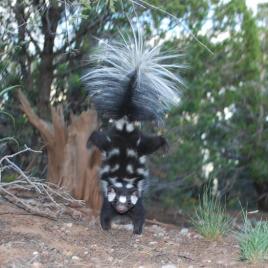
Ice Age climate change more important than geological barriers in spotted skunk evolution
The evolution of Western spotted skunks—tiny, maze-patterned carnivores with a unique hand-stand spraying technique—was influenced by climate change, not geological barriers, new research suggests. Spotted skunks can be found throughout western United States and Mexico, living in a variety of climates. Studying the evolution of skunks may seem arbitrary, but in fact, these small carnivores provide […]
Nearly 1 in 5 people with highest cardiac risk don’t think they need to improve their health 
Awareness of your risk of heart problems isn’t sufficient for action, a new study found. Researchers analyzed 45,443 responses from participants of the 2011-12 Canadian Community Health Survey. The survey included questions on eight established risk factors for a heart attack: smoking, high blood pressure, diabetes, obesity, stress, excessive alcohol consumption, lack of physical activity […]
